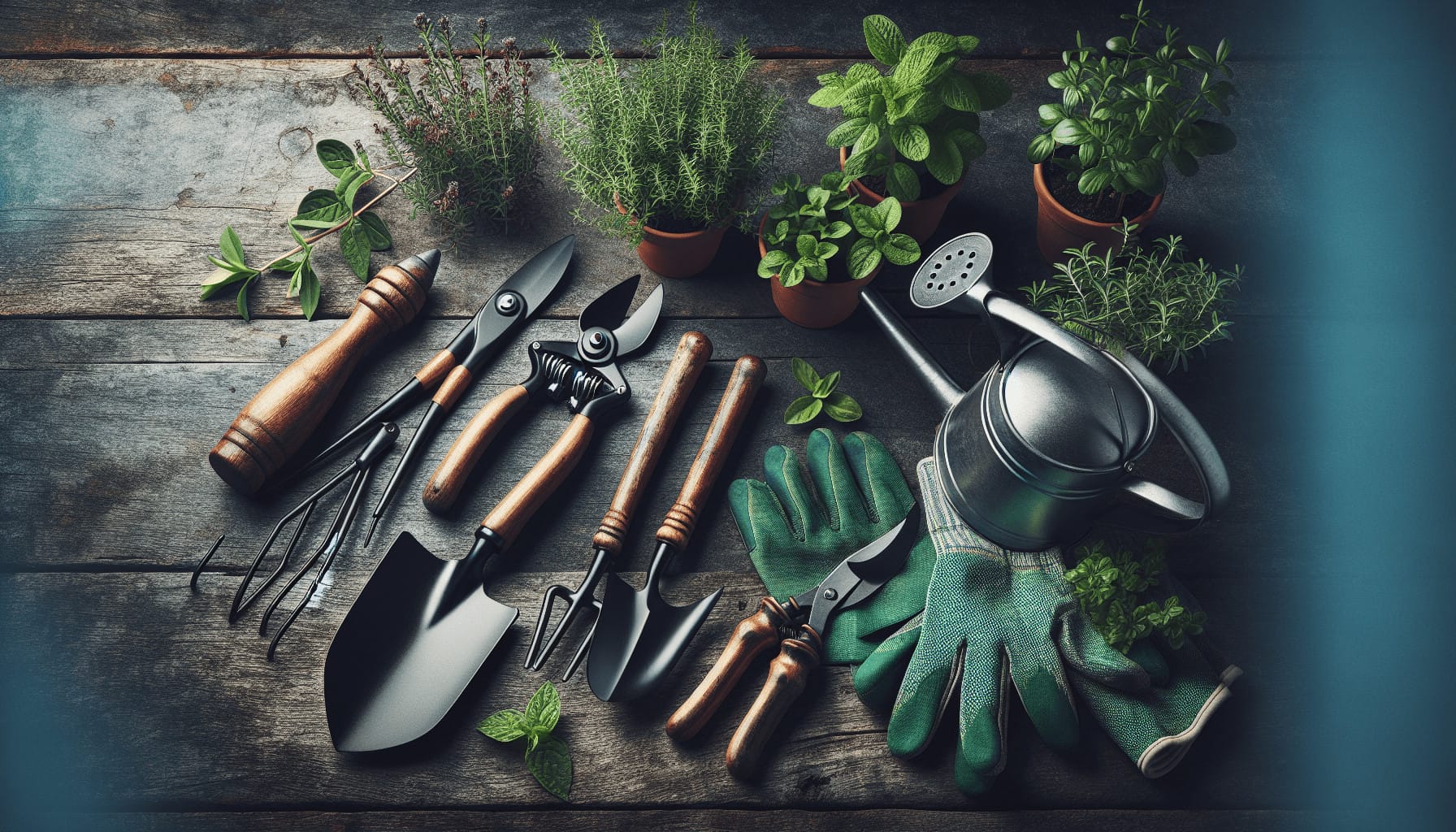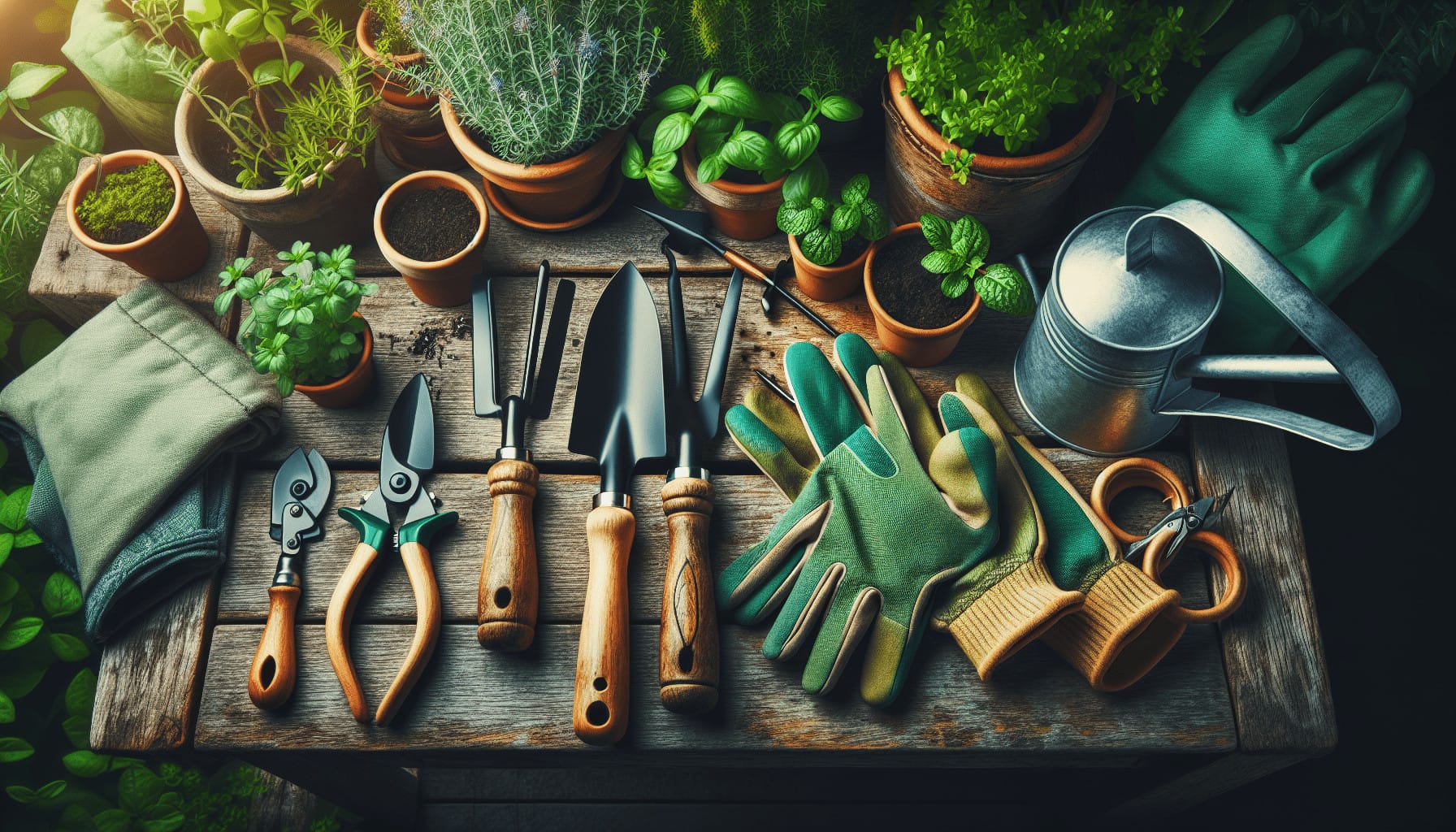The Essential Tools Needed For Urban Gardening
Have you ever thought about starting an urban garden but felt overwhelmed by the lack of space or the tools you might need? Urban gardening can be an incredibly rewarding venture, even in the smallest of spaces. It allows you to cultivate your own greens, herbs, and even flowers directly from your balcony, rooftop, or tiny backyard. With a thoughtful approach and the right tools, you can transform a compact area into a lush haven. Let’s explore some of the essential tools you’ll need to begin your journey into urban gardening.
Understanding Urban Gardening
Urban gardening comes with its unique set of challenges and rewards. Given the often limited space, every square inch of your garden needs to be thoughtfully planned and carefully managed. Urban gardening focuses on maximizing the use of available space to grow plants in environments where ground planting isn’t feasible. It involves using containers, vertical space, and non-traditional growing setups.
Why Urban Gardening?
Urban gardening is not just about growing plants; it’s about bringing a little bit of nature into your urban lifestyle. This practice has gained traction as more people recognize the benefits of growing their own food, reducing their carbon footprint, and finding a peace-inducing hobby in the hustle and bustle of city life. Furthermore, having a green space can improve air quality and provide a pleasant escape within your home.
Benefits at a Glance
| Benefit | Description |
|---|---|
| Health Benefits | Fresh produce leads to better nutrition. Gardening is a form of exercise that promotes mental health. |
| Sustainability | Reduces dependence on store-bought produce, decreasing carbon emissions from transport and packaging. |
| Cost Savings | Growing your own herbs and vegetables can cut down on grocery bills. |
| Aesthetics and Enjoyment | Urban gardens add beauty to your home and a sense of accomplishment. |
Tools for Urban Gardening
Your urban garden’s success heavily relies on the tools you equip yourself with. These tools help you plant, tend, and harvest efficiently without straining your resources or space. Here’s a breakdown of the essential tools you’ll need for your urban gardening setup:
1. Containers and Pots
Since you might not have access to ground soil, containers are fundamental. You need to decide between materials such as plastic, clay, or ceramic. The choice can affect plant growth, as some materials like clay may dry out faster than plastic, necessitating different watering schedules.
Tips for Choosing Containers
- Size: Ensure that your pots have enough space for roots to grow, especially for root vegetables like carrots and potatoes.
- Drainage: Adequate drainage is necessary to prevent root rot. Look for containers with a good number of small holes.
- Material: Consider durability and weight. Lightweight materials can be easier to manage in rooftop gardens.
2. Potting Soil
Unlike traditional garden soil, potting soil is specifically designed for container gardening. It is lighter and drains better, facilitating healthier plant growth.
Importance of Quality Soil
The nutrients present in the soil directly affect plant health and productivity. Use a high-quality potting mix that includes components like peat moss, perlite, or vermiculite to ensure proper texture and nutrition. Some potting soils also come premixed with fertilizers which can support your plants’ growth from the start.
3. Watering Equipment
Keeping your urban garden hydrated is essential. The tools you use will depend on the size of your garden and the variety of plants you’re tending.
Options and Their Uses
- Watering Can: Ideal for small gardens. Choose one with a narrow spout for precise watering.
- Hose with Spray Nozzle: Suitable for larger balcony gardens. A spray nozzle gives you control over the water flow and pressure, which can prevent soil disruption.
- Self-Watering Containers: For those who tend to forget to water or travel often. These containers manage water levels and can be a lifesaver.
4. Hand Tools
These include essentials like hand trowels, pruners, and cultivators. Hand tools are vital for planting, weeding, and maintaining plant health.
Recommended Hand Tools
- Trowel: For digging and planting.
- Pruners: For cutting back overgrown foliage or harvesting herbs and vegetables.
- Cultivator: Perfect for loosening soil and aerating it.
5. Fertilizers
While many potting soils come with nutrients, your plants may need additional feeding as they grow. Organic fertilizers are a fantastic choice, promoting healthy growth without harming the environment.
Types of Fertilizers
- Granular Fertilizers: Offer slow release of nutrients.
- Liquid Fertilizers: Must be applied more often but are easy to absorb.
- Compost: Rich in nutrients and perfect for those who want a more self-sustaining garden.
6. Lighting Solutions
Whether it’s natural or artificial, having enough light is critical for plant photosynthesis. In an urban setup, natural light may be insufficient, necessitating additional solutions.
Lighting Options
- Grow Lights: LED grow lights provide the spectrum of light needed for photosynthesis and are energy-efficient.
- Reflectors: Enhance natural light by reflecting it onto plants.
7. Supports and Trellises
For vining plants like tomatoes, cucumbers, or peas, supports are necessary to manage growth and maximize yield.
Choosing the Right Support
- Material: Look for sturdy materials like metal or treated wood.
- Design: Ensure that it caters to the specific growth pattern of the plant.
8. Pest Control
Maintaining a pest-free garden is crucial. Urban gardens can attract pests like aphids, snails, and caterpillars. Integrated Pest Management (IPM) is a sustainable approach combining cultural, physical, biological, and, if necessary, chemical tactics.
Organic and Natural Solutions
- Neem Oil: Effective for many pests and mites.
- Row Covers and Netting: Physical barriers that prevent pest intrusion without chemicals.
- Companion Planting: Some plants naturally repel pests when placed together.
9. Plant Labels
Keeping track of your plants is easier with labels. They help you identify plant varieties, keep track of planting dates, and manage crop rotation effectively.
Labeling Tips
- Durability: Use weatherproof labels to prevent fading or damage.
- Visibility: Clear and legible labels are essential, especially in diverse gardens.
10. Gardening Books and Apps
Staying informed helps you grow a more successful and sustainable garden.
Resources for Learning
- Books: Choose ones with practical advice tailored to urban conditions.
- Apps: Many gardening apps offer plant care tips, reminders, and diagnostic tools for your garden.

How to Organize Your Urban Garden Tools
Keeping your tools organized ensures efficiency and prevents frustration. Opt for compact storage solutions suitable for small spaces:
Storage Solutions
- Wall-mounted Racks: Save floor space by hanging tools.
- Multi-use Storage Bins: Store various items like seeds, gloves, and small tools.
- Tool Bags: Portable and convenient for balconies or rooftop gardens.
Starting Your Urban Gardening Journey
With these essential tools and tips, you’re well-equipped to embark on your urban gardening journey. Remember, gardening is as much about the process as it is about the results. Each plant you nurture, flower that blooms, and vegetable you grow will enhance your urban sanctuary and reflect your efforts. Whether you’re a beginner or an experienced gardener, the satisfaction that comes from tending to an urban garden is unparalleled.
Your urban garden is a personal project that brings life to city living—making it greener, healthier, and more fulfilling. As you tend to your pocket of nature, you’ll not only enjoy the tangible benefits of fresh produce and vibrant flowers but also the intangible rewards that come with nurturing life in your corner of the world.
In summary, equipping yourself with the right tools is the first step towards creating a thriving urban garden. By choosing appropriate containers, soil, watering techniques, and pest management strategies, you’ll be setting up a garden that can flourish in an urban environment. So, take a step forward, gather your tools, and begin the delightful adventure of urban gardening. The city is your canvas, and with a bit of care, your garden will be a masterpiece of nature amidst the concrete jungle.

